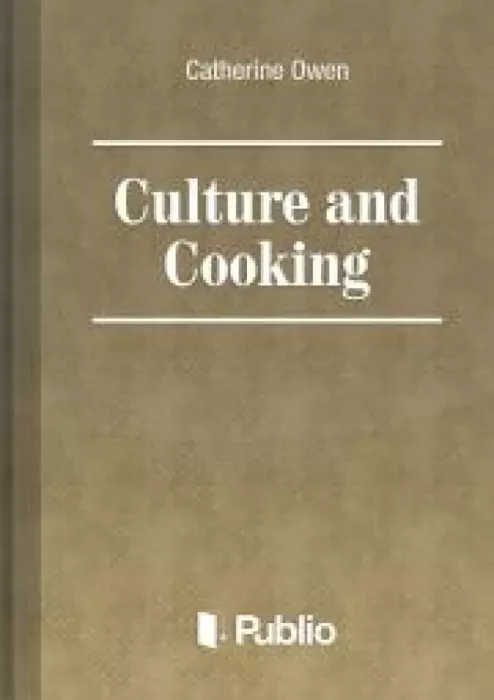
Alexandre Dumas, pere, after writing five hundred novels, says, "I wish to close my literary career with a book on cooking."
Raktári kód:
180547
Oldalszám:
96
Szállítás:
Azonnal
Elérhető nálunk:
.ePub formátumban
Eredeti ár:
690 Ft
Adatok
Alexandre Dumas, pere, after writing five hundred novels, says, "I wish to close my literary career with a book on cooking."
And in the hundred pages or so of preface—or perhaps overture would be the better word, since in it a group of literary men, while contributing recondite recipes, flourish trumpets in every key—to his huge volume he says, "I wish to be read by people of the world, and practiced by people of the art" (gens de l'art); and although I wish, like every one who writes, to be read by all the world, I wish to aid the practice, not of the professors of the culinary art, but those whose aspirations point to an enjoyment of the good things of life, but whose means of attaining them are limited.There is a great deal of talk just now about cooking; in a lesser degree it takes its place as a popular topic with ceramics, modern antiques, and household art. The fact of it being in a mild way fashionable may do a little good to the eating world in general. And it may make it more easy to convince young women of refined proclivities that the art of cooking is not beneath their attention, to know that the Queen of England's daughters—and of course the cream of the London fair—have attended the lectures on the subject delivered at South Kensington, and that a young lady of rank, Sir James Coles's daughter, has been recording angel to the association, is in fact the R. C. C. who edits the "Official Handbook of Cookery."
And in the hundred pages or so of preface—or perhaps overture would be the better word, since in it a group of literary men, while contributing recondite recipes, flourish trumpets in every key—to his huge volume he says, "I wish to be read by people of the world, and practiced by people of the art" (gens de l'art); and although I wish, like every one who writes, to be read by all the world, I wish to aid the practice, not of the professors of the culinary art, but those whose aspirations point to an enjoyment of the good things of life, but whose means of attaining them are limited.There is a great deal of talk just now about cooking; in a lesser degree it takes its place as a popular topic with ceramics, modern antiques, and household art. The fact of it being in a mild way fashionable may do a little good to the eating world in general. And it may make it more easy to convince young women of refined proclivities that the art of cooking is not beneath their attention, to know that the Queen of England's daughters—and of course the cream of the London fair—have attended the lectures on the subject delivered at South Kensington, and that a young lady of rank, Sir James Coles's daughter, has been recording angel to the association, is in fact the R. C. C. who edits the "Official Handbook of Cookery."
Vélemények
Hírek